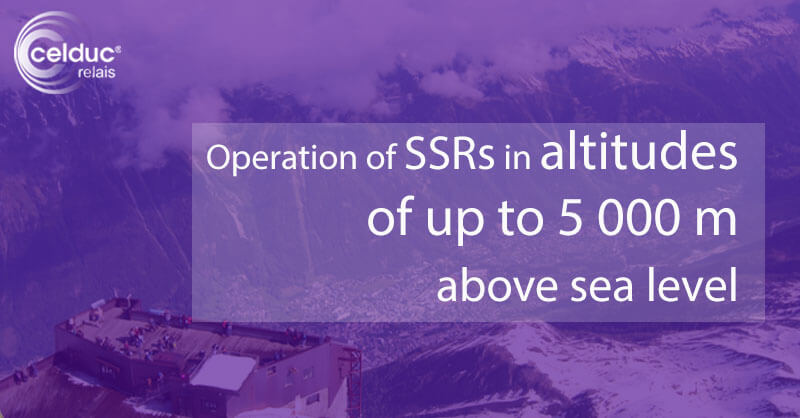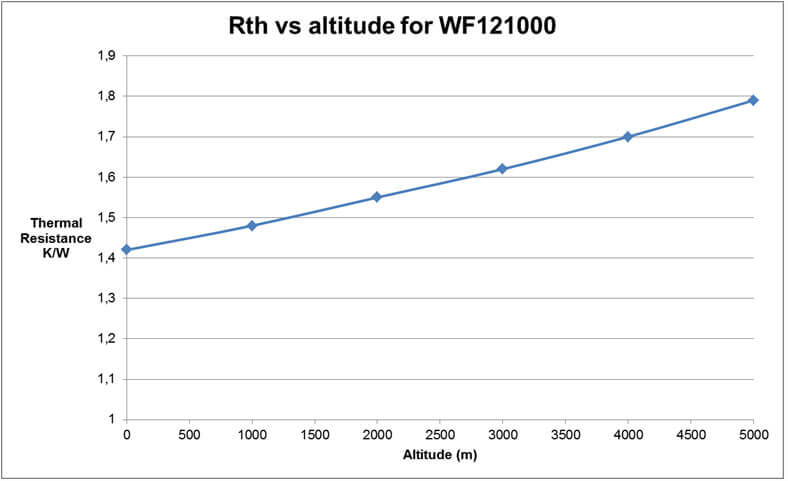How celduc's Solid State Relays operate in altitudes of up to 5000 m above sea level
Under what conditions is it permissible to use celduc’s solid state relays & contactors when installed in altitudes of 2000 m to 5000 m above sea level?

Altitude has an impact on insulation and heat dissipation, both decrease as altitude increases.
The Rated impulse-withstand voltage (Uimp) mentioned in our data sheet applies to SSRs installed up to 2000 m above sea level. Higher altitude does not significantly affect SSR performance because our products are encapsulated and therefore there are no internal problems caused by air density. In addition, we design and manufacture our SSRs with the requisite dimensions and materials so that they can operate consistently up to an altitude of 2000 m. The two most important issues to take into account are pollution (conductive dust) and humidity (condensation) which may lower the insulation voltage that the product can withstand. For this, we recommend using an electrical junction box.
Concerning the 2nd point, which relates to heat dissipation, the Rth values of our natural convection heatsinks are for SSRs dissipating 50W of power, in a 40°C ambient temperature, vertically mounted, in stable air and at 400 m above sea level. Above this altitude, the SSR’s dielectric strength and the air’s cooling capacity decrease. Heat dissipation is also less, so it might be necessary to increase the size of the cooling element (heatsink) used with the SSR. Usually you should increase the heatsink’s Rth value by 5% for each additional 1000 metres or reduce the current by 5% for SSRs mounted on a heatsink. Here is an example:
:
For heatsinks equipped with a fan (ventilated), please contact us for installations above 2000 m as we may need to adjust the fan in order to minimise any loss of performance.
In any case, as a safety precaution, tests must be carried out using a nominal current, in an ambient temperature with a T°C measurement on the heatsink near the relay. The temperature must not exceed 100°C.
